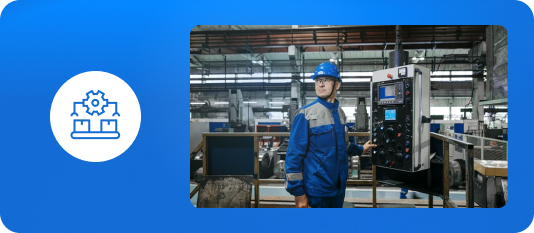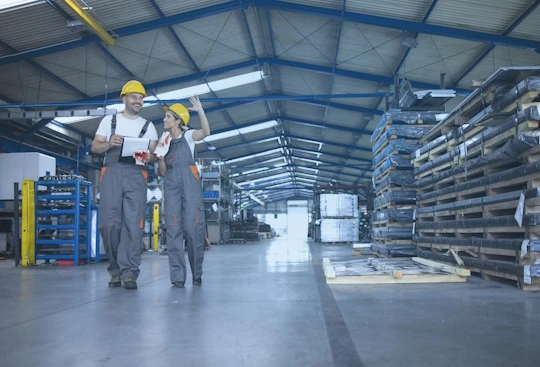-
Company
-
Sectors

-
IT solutionsIT solutions
-
Cybersecurity

-
IT infrastructure

- Apollo ECI
- Data Center
- ECI Telecom
- Neptune ECI
- LAN and WiFi network systems
- Hosting services
- Backup systems
- OT network systems
- IT consulting
- Servers, arrays, networks
- Outsourcing services
- Guaranteed power supply systems
- Low-current installations
- Computer and printing equipment
- Service contracts
- Cloud services
- Virtualization
-
ERP and BI systems

-
Systems for production

-
Warehouse management systems (WMS)

-
Personnel and HR systems

-
Systems for universities

- University Study Management System
- Teta EDU
- Student e-file
- Online Candidate Registration
- OPTiDrop App
- Student Extranet
- Electronic Attendance List
- System of Academic Career Offices
- Electronic Room Reservation System
- OPTicamp academic teacher electronic ID card
- OPTicamp electronic PhD student ID card
- OPTicamp electronic student ID
-
Workflow and applications

-
CMS system and websites

-
Chatbots

-
Web platforms and applications

-
Other technologies


-
-
Knowledge
-
Contact
Digitalization of production processes. About IT technology in the era of Industry 4.0.
Currently, information technology plays a crucial role in economic development, increasingly penetrating areas that previously had little in common. In the era of the fourth industrial revolution, manufacturing companies are even striving to strengthen their relationships with the IT industry, realizing that digitizing processes is the foundation for effective operation in today's dynamically changing market.
Rapid computerization is transforming the industry, and IT technology is becoming the foundation of efficient production processes. Modern enterprises are investing in a growing number of dedicated solutions that streamline operations at every stage of the manufacturing process.
The scope of IT technology use
Among the improvements implemented, manufacturing companies are increasingly focusing on solutions that support processes performed through automated production lines. This is why areas are emerging that are entirely managed by robots and electronic devices. It is also increasingly difficult to imagine companies operating without an efficient production management system that supports all processes or selected areas requiring IT support.
Properly selected and implemented software streamlines, for example:
- production ordering processes,
- production planning and scheduling,
- machine monitoring,
- quality control of manufactured components.
The primary benefits of computerizing these areas include:
- real-time access to current information directly from production in progress,
- the ability to calculate deadlines and costs,
- simulation of assumed production plans.
The selection of IT solutions depends on many factors. Each entity has its own specific requirements based on market conditions, work methodology, technology used, and production type. For some, a well-organized production line equipped with robots or automation that execute key processes is paramount. For others, a well-used, ergonomic, and reliable ERP system containing key functionalities that streamline production – MRP, APS, or MES – is fundamental.
All these IT solutions enable the effective and efficient operation of a company. And if we add tools such as project management support and analytical tools to this set, a comprehensive, diverse solution aligned with the Industry 4.0 concept emerges.
Industry expectations from the IT industry
The ongoing challenges facing the IT industry include the constant pursuit of minimizing information access time and improving the quality of acquired data. This is particularly important in the context of the growing phenomenon of Big Data, which involves collecting and analyzing data from many different sources – in practice, the solutions used by modern manufacturing enterprises. Equally important is the introduction of new solutions that optimize both Big Data-related activities and processes such as:
- the Internet of Things (IoT),
- artificial intelligence (AI),
- machine learning.
These phenomena will further deepen and interconnect the industry and computerization in its broadest sense.
According to the concept of Industry 4.0, all components of an enterprise's IT infrastructure should be integrated and interconnected, and centrally and remotely managed. A secure IT infrastructure should encompass all the following:
- production systems (MES, MRP, APS, SCADA, etc.),
- ERP systems for enterprise management,
- sales systems,
- machines and equipment.
Therefore, one of the greatest challenges posed by the fourth industrial revolution is coordinating the components of the IT environment to ensure optimal utilization of available resources and full supervision. This challenge stems, in part, from the use of diverse solutions, which necessitate standardized interfaces for communication and data exchange.
Due to the rise in cybercrime today, ensuring the security of installations is also a major challenge, as they constitute a key element of a company's operations in the age of automation and computerization. In this case, selecting a business partner who will provide access to new technologies, as well as their proper integration, communication, and management, is crucial.
The importance of industry 4.0
The automation and computerization of production plants is an inevitable development direction for companies in the industrial sector. The constant pursuit of minimizing the costs and time of accessing data at various stages means that companies striving to meet customer demands must invest in modern means to facilitate the acquisition of up-to-date information directly from the production process. Investments in hardware infrastructure, production process management software, and new IT technologies are essential for competitiveness.
Related articles
Polityka prywatności
Klauzula Informacyjna - przetwarzanie danych osobowych w OPTeam S.A.
Ochrona prywatności użytkowników Internetowych serwisów OPTeam SA jest dla nas bardzo ważna.
Niniejsza polityka zawiera informacje dotyczące gromadzonych danych oraz zasad ich przetwarzania i wykorzystywania we wszystkich serwisach www prowadzonych i utrzymywanych przez OPTeam SA. Wykorzystanie i zbieranie informacji o użytkownikach Internetowych serwisów ograniczane jest do niezbędnego minimum wymaganego do świadczenia przez OPTeam SA usług na najwyższym poziomie. Polityka prywatności zawiera informacje na temat narzędzi stosowanych przez OPTeam SA w celu zapewnienia jak największej wygody korzystania z Internetowych serwisów (cookies, logi systemowe) oraz o danych zbieranych przez podmioty zajmujące się analityką serwisów. Polityka określa ponadto w jaki sposób chronimy Twoje dane, jakie prawa Ci przysługują oraz w jaki sposób możesz je wykonywać. Jednocześnie wskazane zostały narzędzia służące do zarządzania wyrażonymi przez Ciebie zgodami.
Jakie dane zbieramy?
OPTeam dokłada wszelkich starań, żeby Internetowe serwisy informacyjne były wygodne w użyciu. Dla zwiększenia wydajności serwisów stosowana jest technologia anonimowych cookies oraz pobierane są dane statystyczne o najczęściej poszukiwanych, za pomocą wyszukiwarki frazach, dzięki czemu aktualizowana jest na bieżąco nawigacja serwisu, żeby wyszukiwanie treści było wygodne i intuicyjne.
Przetwarzamy dane, żeby:
- dopasować prezentowane treści do potrzeb i zainteresowań użytkowników,
- zapewnić bezpieczeństwo usług,
- prezentować informacje o produktach i usługach dopasowane do potrzeb i zainteresowań użytkowników,
- dokonywać pomiarów, które pozwalają udoskonalać oferowane produkty i usługi.
Cookies (ciasteczka).
Serwis nie zbiera w sposób automatyczny żadnych informacji, z wyjątkiem informacji zawartych w plikach cookies.
- Pliki cookies (tzw. "ciasteczka") stanowią dane informatyczne, w szczególności pliki tekstowe, które przechowywane są w urządzeniu końcowym Użytkownika Serwisu i przeznaczone są do korzystania ze stron internetowych Serwisu. Cookies zazwyczaj zawierają nazwę strony internetowej, z której pochodzą, czas przechowywania ich na urządzeniu końcowym oraz unikalny numer.
- Podmiotem zamieszczającym na urządzeniu końcowym Użytkownika Serwisu pliki cookies oraz uzyskującym do nich dostęp jest OPTeam SA, Tajęcina 113, 36-002 Jasionka.
- Pliki cookies wykorzystywane są w celu:
- dostosowania zawartości stron internetowych Serwisu do preferencji Użytkownika oraz optymalizacji korzystania ze stron internetowych; w szczególności pliki te pozwalają rozpoznać urządzenie Użytkownika Serwisu i odpowiednio wyświetlić stronę internetową, dostosowaną do jego indywidualnych potrzeb;
- tworzenia statystyk, które pomagają zrozumieć, w jaki sposób Użytkownicy Serwisu korzystają ze stron internetowych, co umożliwia ulepszanie ich struktury i zawartości
- utrzymanie sesji Użytkownika Serwisu (po zalogowaniu), dzięki której Użytkownik nie musi na każdej podstronie Serwisu ponownie wpisywać loginu i hasła.
- W ramach Serwisu stosowane są dwa zasadnicze rodzaje plików cookies: "sesyjne" (session cookies) oraz "stałe" (persistent cookies). Cookies "sesyjne" są plikami tymczasowymi, które przechowywane są w urządzeniu końcowym Użytkownika do czasu wylogowania, opuszczenia strony internetowej lub wyłączenia oprogramowania (przeglądarki internetowej). "Stałe" pliki cookies przechowywane są w urządzeniu końcowym Użytkownika przez czas określony w parametrach plików cookies lub do czasu ich usunięcia przez Użytkownika.
- W ramach Serwisu stosowane są następujące rodzaje plików cookies:
- "niezbędne" pliki cookies, umożliwiające korzystanie z usług dostępnych w ramach Serwisu, np. uwierzytelniające pliki cookies wykorzystywane do usług wymagających uwierzytelniania w ramach Serwisu;
- pliki cookies służące do zapewnienia bezpieczeństwa, np. wykorzystywane do wykrywania nadużyć w zakresie uwierzytelniania w ramach Serwisu;
- "wydajnościowe" pliki cookies, umożliwiające zbieranie informacji o sposobie korzystania ze stron internetowych Serwisu;
- "funkcjonalne" pliki cookies, umożliwiające "zapamiętanie" wybranych przez Użytkownika ustawień i personalizację interfejsu Użytkownika, np. w zakresie wybranego języka lub regionu, z którego pochodzi Użytkownik, rozmiaru czcionki, wyglądu strony internetowej itp.;
- "reklamowe" pliki cookies, umożliwiające dostarczanie Użytkownikom treści reklamowych bardziej dostosowanych do ich zainteresowań.
- W wielu przypadkach oprogramowanie służące do przeglądania stron internetowych (przeglądarka internetowa) domyślnie dopuszcza przechowywanie plików cookies w urządzeniu końcowym Użytkownika. Użytkownicy Serwisu mogą dokonać w każdym czasie zmiany ustawień dotyczących plików cookies. Ustawienia te mogą zostać zmienione w szczególności w taki sposób, aby blokować automatyczną obsługę plików cookies w ustawieniach przeglądarki internetowej bądź informować o ich każdorazowym zamieszczeniu w urządzeniu Użytkownika Serwisu. Szczegółowe informacje o możliwości i sposobach obsługi plików cookies dostępne są w ustawieniach oprogramowania (przeglądarki internetowej).
- Operator Serwisu informuje, że ograniczenia stosowania plików cookies mogą wpłynąć na niektóre funkcjonalności dostępne na stronach internetowych Serwisu.
- Pliki cookies zamieszczane w urządzeniu końcowym Użytkownika Serwisu i wykorzystywane mogą być również przez współpracujących z operatorem Serwisu reklamodawców oraz partnerów.
- Więcej informacji na temat plików cookies dostępnych jest pod adresem www.wszystkoociasteczkach.pl lub w sekcji "Pomoc" w menu przeglądarki internetowej.
- Strona korzysta z narzędzi analitycznych Google Tag Manager należących do Google LLC, 1600 Amphitheatre Parkway, Mountain View, CA 94043, Stany Zjednoczone, które pozwalają monitorować działania (tzw. zdarzenia) wykonywane przez Ciebie podczas wizyty na Stronie, takie jak np.: kliknięcie w przycisk, przesłanie formularza kontaktowego, pobranie pliku. W tym celu wykorzystywane są pliki cookies Google LLC dotyczące usługi Google Tag Manager. Szczegółowe informacje związane z przetwarzaniem danych przez Google Analytics są udostępnione przez Google na stronie: https://support.google.com/tagmanager/answer/9323295?hl=pl.
- Strona korzysta z narzędzi analitycznych Google Analytics należących do Google LLC, 1600 Amphitheatre Parkway, Mountain View, CA 94043, Stany Zjednoczone, które zbierają informacje na temat Twoich odwiedzin Serwisu, takie jak: wskazanie stron, które wyświetliłeś, czas, jaki spędziłeś na stronie czy przejścia pomiędzy poszczególnymi stronami. W tym celu wykorzystywane są pliki cookies Google LLC dotyczące usługi Google Analytics. Szczegółowe informacje związane z przetwarzaniem danych przez Google Analytics są udostępnione przez Google na stronie: https://support.google.com/analytics/answer/6004245.
- Strona korzysta z narzędzi analitycznych Google Search Console należących do Google LLC, 1600 Amphitheatre Parkway, Mountain View, CA 94043, Stany Zjednoczone, które pomagają monitorować, utrzymywać i rozwiązywać problemy związane z obecnością witryny w wynikach wyszukiwania Google. Szczegółowe informacje związane z przetwarzaniem danych przez Google Search Console są udostępnione przez Google na stronie: https://support.google.com/webmasters/answer/9128668?hl=pl. Wszelkie pozostałe informacje związane z prywatnością i bezpieczeństwem danych gwarantowanych przez Google, można znaleźć pod adresem: https://policies.google.com/privacy?hl=pl.
- Serwis korzysta z narzędzia analitycznego HotJar należącego do HotJar, Level 2, St Julian’s Business Centre 3, Eliza Zmmit Street, St Julian’s ST 1000, Malta, które śledzi Twoje zachowanie podejmowanie w obrębie Serwisu. W tym cellu wykorzystywane sa pliki cookies. Z pomocą HotJar analizowane są zachowania Użytkownika, tj. czas spędzony na poszczególnych stronach, przyciski, w które klika, linki, z których korzysta itp. Więcej informacji odnajdziesz w polityce prywatności HotJar: https://www.hotjar.com/legal/policies/privacy.
- Z narzędzia lead generation Bazo, które identyfikuje ruch na stronie (wizyty na podstronach serwisu). Narzędzie należy do Bazo Sp. z o.o., ul. Bohdana Dobrzańskiego 3, 20-262 Lublin, Regon: 364959893, NIP: 9462661611. Szczegółowe informacje związane z przetwarzaniem danych przez Google Analytics są udostępnione przez Google na stronie: https://bazo.io/pl/polityka-prywatnosci.
- Menadżera Kampanii LinkedIn, systemu reklamowego należacego do Microsoft z siedzibą Redmond, WA 98052-7329 USA. Więcej informacji odnajdziesz w polityce prywatności: https://www.linkedin.com/legal/privacy-policy?trk=homepage-basic_footer-privacy-policy.
- Menadżera Reklam Meta, systemu reklamowego należącego do Facebooka z siedzibą 1 Hacker Way, Menlo Park, CA 94025. Więcej informacji odnajdziesz w polityce prywatności: https://www.facebook.com/privacy/policy/?entry_point=facebook_help_center_ig_data_policy_redirect&locale=pl_PL.
Logi systemów.
Logi systemów, czyli rejestr zdarzeń - utworzony w chronologicznej kolejności zapis informacji o zdarzeniach i działaniach dotyczących strony WWW. Zawierają one takie dane jak adres IP, z którego nastąpiło wejście na daną podstronę, adres tej strony oraz czas połączenia. Logi systemów wykorzystywane są przez OPTeam SA w szczególności w celach statystycznych oraz monitorowania bezpieczeństwa.
Zmiany w polityce ochrony prywatności Internetowych Serwisów Informacyjnych OPTeam.
Na zmiany w Polityce prywatności Internetowych serwisów OPTeam może wpłynąć zmiana technologii internetowej, zmiany powszechnie obowiązujących przepisów prawa, w tym w zakresie ochrony danych osobowych.
Zmiany polityki będą zamieszczane pod adresem http://www.opteam.pl/polityka-prywatnosci.
WŁĄCZANIE / USUWANIE / BLOKOWANIE PLIKÓW COOKIES W INTERNETOWYCH SERWISACH OPTEAM SA.
Internetowe serwisy OPTeam SA korzystają z plików cookies zgodnie z dokonanymi indywidualnie przez Użytkownika ustawieniami przeglądarki internetowej. W wielu przeglądarkach obsługa plików cookies jest domyślnie włączona. Korzystanie z Internetowych serwisów OPTeam SA, bez zmiany ustawień w przeglądarce dotyczących cookies, oznacza potwierdzenie zapoznania się z powyższymi informacjami i akceptację plików cookies. Jeżeli Użytkownik nie akceptuje plików cookies może w dowolnym momencie, w swojej przeglądarce internetowej, zmienić ustawienia lub wyłączyć obsługę plików cookies.
Korzystanie z Internetowych serwisów informacyjnych z włączoną obsługą plików cookies w przeglądarce oznacza, że pliki te zapisane będą w pamięci urządzenia użytkownika.
Więcej informacji na temat plików cookies dostępnych jest w sekcji „Pomoc” w menu przeglądarki internetowej użytkownika lub na poniższych stronach.
- Cookies w przeglądarce Chrome
- Cookies w przeglądarce Firefox
- Cookies w przeglądarce Opera
- Cookies w przeglądarce Safari
- Cookies w przeglądarce Internet Explorer
Użytkownicy, którzy po zapoznaniu się z informacjami dostępnymi w Internetowych serwisach informacyjnych, nie chcą żeby pliki cookies pozostały zachowane w przeglądarce internetowej urządzenia, powinni usunąć je ze swojej przeglądarki po zakończeniu wizyty w Internetowym serwisie informacyjnym.
ADMINISTRATOR DANYCH OSOBOWYCH.
Administratorem danych osobowych jest OPTeam S.A. z siedzibą w Tajęcinie, adres: Tajęcina 113, 36-002 Jasionka w Sądzie Rejonowym w Rzeszowie, XII Wydział Gospodarczy Krajowego Rejestru Sądowego, pod numerem KRS 0000160492, NIP: 813-03-34-531, REGON: 008033000, kapitał zakładowy (kapitał wpłacony) 730 000 zł, Inspektor Ochrony Danych.
W OPTeam S.A. został powołany Inspektor Ochrony Danych, adres: Inspektor Ochrony Danych, Tajęcina 113, 36-002 Jasionka, adres e-mail: odo@opteam.pl.
Udostępnienie danych klienta.
OPTeam SA nie udostępnia danych powiązanych z plikami cookies żadnym podmiotom zewnętrznym.
Necessary cookies help make a website usable by enabling basic functions such as page navigation and access to secure areas of the website. The website cannot function properly without these cookies.
Functional cookies help the website function properly and ensure that the information you need is displayed quickly and accurately when you visit the website.
Statistical cookies help website owners understand how different users behave on the site by collecting and reporting information anonymously.
Marketing cookies are used to track users across websites. The goal is to display advertisements that are relevant and interesting to individual users and therefore more valuable to publishers and third-party advertisers.

